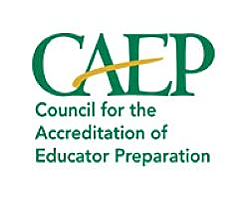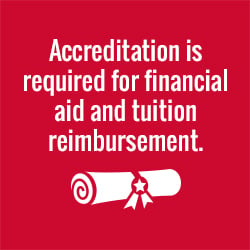Table of Contents
FAQ: Earning Your Education Specialist Degree Online

The Education Specialist (Ed.S.) degree prepares teachers and other educators for the most important jobs in school administration. Many Ed.S. graduates serve as principals, assistant principals or campus-based directors. The degree can also help you qualify for administrative roles at the district level, or positions in regional or state education agencies.
Education specialists have broad knowledge of K-12 operations and policy as well the legal and financial aspects of school administration. They also have expertise in teaching pedagogy, curriculum design and student assessment, and understand best practices in the classroom.
Ed.S. students gain experience in each of these areas during their studies, while also developing as leaders. Graduates are prepared to create a learning environment where all students can succeed.
Online education specialist programs offer teachers and current administrators the flexibility they may need to earn a degree while working full time. Accelerated courses with weekly deadlines are structured to help busy educators fit post-master’s study into their regular routine. Learning online can lower the cost of your degree as well.
What Is an Education Specialist Degree?

The Education Specialist degree is for teachers and administrators seeking career advancement. It can prepare educators for a range of leadership positions in their school or district.
The Ed.S. is unique to the field of education because it’s tailored to students who want to continue building new knowledge and skills after earning a master’s degree. This form of post-graduate study is perfect for educators with a passion for learning, and those who want to continue their professional development. Education specialist graduates often have a competitive advantage when applying for coordinator, director, principal or superintendent roles.
Completing an Ed.S. degree is also great preparation for students who wish to pursue a Doctor of Education (Ed.D.) in the future.
What Is the Difference Between an Ed.S. and an Ed.D. Degree?

Education Specialist is a post-master’s degree that requires 30-36 credit hours of study, on average. The Doctor of Education is a terminal degree that requires at least 60 credit hours of study. The two share some common coursework at many schools, but their requirements and outcomes are often different.
The Ed.S. is more application-based and does not usually require a final exam or thesis. Doctoral students conduct original research, pass qualifying exams and write a dissertation to earn their degree.
Students who want the advanced knowledge and career benefits of post-master’s study but are not ready for the time and research commitment a doctorate requires often find an education specialist degree is just the right fit.
What Will I Learn in an Education Specialist Degree Program?

Ed.S courses prepare educators to lead and innovate at a high level, and to help their schools grow and adapt. As administrators consider the lessons learned from being on the front lines of the COVID-19 pandemic, education specialists also study ways to manage change and address the full range of challenges and opportunities occurring across the K-12 landscape.
Arkansas State University’s post-graduate online Ed.S. programs are designed for education professionals with a master's degree who want to become effective school leaders and administrators. Courses are accelerated and 100% online, so you don’t have to take time away from your students to advance your career. Available Ed.S. programs include curriculum director, gifted and talented director, principalship, reading, special education director and superintendency.

—Lewis Hunt, A-State online Ed.S. graduate
—Adam Langdon, A-State online Ed.S. graduate


"We've spent a lot of time designing the curriculum specifically to make it very flexible, because we understand students are going to bring in transfer credits and we want to make sure those tap into their degree. We know it's important for our students to get out in that career field or advance where they're at, and we want to make sure that they get there as quick as possible.”
Is Accreditation Important for Online Education Specialist Degree Programs?

Yes. Program accreditation is a rigorous independent review process focused on areas such as faculty qualifications, courses and curriculum, student resources and more. Colleges and universities are also reviewed by regional accrediting bodies who examine the school's operations, finances and policies as well as overall student learning outcomes and graduation rates.
Arkansas State University’s online Ed.S. programs are accredited by the Council for the Accreditation of Educator Preparation (CAEP). The university is also regionally accredited by the Higher Learning Commission.
Why Does Accreditation Matter?

Accreditation is important for several reasons. Teachers, principals and other administrators can't qualify for licensure in most states without a degree from an accredited program or institution. This means that school districts can’t consider applicants with an unaccredited degree for these key roles.
Enrolling in an unaccredited education specialist degree program can also be a financial risk, since students and graduates of those programs don’t generally qualify for the following:
- Federal financial aid through the U.S. Department of Education
- Active-duty military and veteran education benefits through the U.S. Department of Veterans Affairs
- Federal loan forgiveness programs for teachers and educators
- State financial aid and loan forgiveness programs
What Are the Admission Requirements for Education Specialist Degree Programs?

Requirements can vary, but a master's degree from an accredited graduate program or institution is usually a must. You’ll also need to submit official transcripts from your previous colleges and universities, and your GPA should meet the program's minimum admission standard. A teaching certificate and several years of experience in the classroom may be required as well.
A-State online Ed.S. programs require an accredited master’s degree, in addition to official transcripts and a valid teaching license.
Visit the curriculum director, gifted and talented director, principalship, reading, special education director and superintendency program pages for GPA requirements and additional application details.
Is Field Experience Required for Administrators?
It depends on your state. For example, legislative mandates for principal licensure often include a field experience requirement in the form of an internship or practicum. Time spent working as a building-level administrator while you earn your Ed.S. degree may also count in some states, while others have no field experience requirement for administrators at all.
Check with the educator licensing agency in your state for the most accurate and updated information.
How Do Internships Work in Online Education Specialist Degree Programs?
Education specialist internships don’t differ significantly between online and campus-based degree programs. As an online student, however, you may have more flexibility to choose your site and supervisor.
The goal is to spend focused time working directly with an administrative mentor in a primary or secondary school setting. In addition to learning a new role and gaining valuable experience, you may also complete projects or a portfolio, depending on your program.
Can I Complete My Internship Where I Currently Teach?

In most cases, yes. Many teachers enjoy interning with an administrator on their home campus and learning from a colleague they already know and respect. Building new knowledge in a familiar setting can also help you work with your present school and district to promote student success. Just confirm that your prospective educational specialist program offers this internship option before you apply.
Students in A-State online Ed.S. programs that require an internship can begin working with a professional mentor early in their post-graduate studies, integrating field experience and related activities into their coursework.

Most courses make additional resources available to students who want to learn more; take advantage of those resources and learn more than you are required to know.
—Dr. Jackie McBride, Professor
—Josh Wiltfong, A-State online Ed.S. graduate

Where Can I Find Licensing Requirements for Principals and Administrators?
Visit the U.S. Department of Education to view an interactive map with licensing agency contacts for all states and territories.
I May Want to Move After Earning My Ed.S. How Does License Reciprocity Work?

It depends on the state in question. Some states issue equivalent licenses to teachers, principals and administrators without a significant wait as long as the educator meets basic equivalency criteria. Minimum requirements for reciprocity usually include:
- A qualifying master’s, specialist or doctoral degree
- An educator’s license from your current state that’s in good standing
- Previous teaching or administrative experience
- New background and fingerprint checks
Many states also require educators to pass an additional assessment test, complete extra coursework or meet other standards. Arkansas’ handy licensure by reciprocity checklist offers an illustrative example of what the process can entail, along with the type of documentation typically requested.
The good news is that you might be able to work under a conditional license while you complete any additional requirements. Just check with the educator licensing agency in your new state before you begin the application process to make sure you understand what’s involved.
Where Can I Find License Reciprocity Information by State?
The National Association of State Directors of Teacher Education and Certification administers the Interstate Reciprocity Agreement, which outlines requirements issued by the majority of U.S. states and territories. NASDTEC’s site also offers direct links to relevant reciprocity information at each licensing agency.
What Is the Career Outlook for Graduates With an Education Specialist Degree?

With an Ed.S. degree you can pursue any number of exciting careers at the campus and district level. Some graduates become principals or move up to roles such as superintendent. Others pursue supervisory or director positions in school administration.
You can also join a government or nonprofit agency working in the field of education, leverage your instructional and leadership experience to start a career as an educational services consultant, or become an entrepreneur developing new technology or resources for teachers.
Regardless of your goals, an Ed.S. degree can raise your professional profile and qualify you for a range for new opportunities.

—Adam Langdon, A-State online Ed.S. graduate
How Much Can K-12 Principals and Administrators Earn With an Ed.S. Degree?

According to BLS data, the annual median wage for both elementary, middle and high school principals and other K-12 administrators is more than $98,000 nationally. While you may not see this level of pay at all campuses or in your first leadership or administrative role, the expertise you gain with an education specialist degree can help you earn more across the balance of your career.
Many building and district-level leaders earn higher salaries. Six-figure compensation packages are common for principals and superintendents in large metro areas or suburban school districts with significant financial resources. School leaders may also earn bonuses or incentive pay based on meeting performance goals. Ed.S graduates pursuing high-profile administrative positions at the district, regional and state level can make more as well.
If you have trouble figuring out your earning potential with an Ed.S. degree in your current role, ask an HR representative for assistance. It’s important to understand pay grades, steps by education and experience and the supplement categories that may apply.
If your current employer doesn’t place education specialists on a higher salary scale, or offer the stipend or promotion you seek, you can always consider your options. Ed.S. graduates who are open to changing districts in the same metro area can sometimes increase their pay faster by doing so, without having to uproot family or leave their community behind.
How Much Does an Online Educational Specialist Degree Program Cost?

Tuition rates and required fees can vary, and your residency status (in state or out of state) may also be a factor in your Ed.S. program cost. Private colleges and universities tend to be the most expensive options, while public institutions and online programs often charge less. A little research on education specialist degrees can help you compare, to find a high-quality program that meets your needs and budget.
All of A-State's affordable online Ed.S. programs cost only $340 per credit hour, fees included. Students pay the same low tuition rate whether they live in Arkansas or out of state.

—Kevin Belt, A-State online Ed.S. graduate
—Steven Reeder, A-State online Ed.S. graduate

Is Financial Aid Available to Online Graduate Students?
Yes, federal and state financial aid is available to online graduate students. As long as your degree program or institution is accredited, you can apply. Your income and the program's cost are among the factors that determine the amount of funding you may receive.
Online students can qualify for loans, grants and scholarships just as on-campus students do. Complete the Free Application for Federal Student Aid (FAFSA) form online to see what aid is available to you.
Can I Use My Military Education Benefits for an Online Educational Specialist Degree?
Yes. Active-duty service members, veterans and their families can use military education benefits to pay for an Ed.S. degree earned online. Just make sure your graduate program or university is accredited. Visit the U.S. Department of Veteran Affairs for additional information regarding VA education and training benefits.
Online students with a military affiliation at A-State can access GI Bill and Post-9/11 GI Bill benefits, and those receiving tuition assistance can also apply for the Arkansas State University Military Scholarship. This award caps the cost of tuition for all graduate classes. Military spouses and dependents can qualify for reduced tuition rates as well.

—Josh Wiltfong, A-State online Ed.S. graduate
Can I Get Help Certifying My Military Education Benefits?
Yes. Most universities provide their online students with this type of assistance. You can get help with applying for your military education benefits as well as certifying them to pay tuition and expenses. Many institutions also offer programs to help with housing or other needs.
A-State’s dedicated veterans affairs representative in the registrar’s office provides assistance at every step of the education benefit process, from application to certification. The Beck Center for Veterans also offers a wide range of online help and resources for military-affiliated students.
How Long Will It Take to Complete an Education Specialist Degree Online?

Students can complete most online Ed.S. programs much faster than an equivalent program on campus, often in less than two years. A key reason is because courses are usually accelerated, lasting about half as long as a regular semester. Classes are available year-round as well. Teachers learning online frequently double up on courses during summer break.
A-State online Ed.S. programs can be completed in as few as 18 months. Seven-week classes and six course start dates per year help students move through degree requirements quickly. If you need to study part-time over a longer period, that’s fine too. You can take courses as your schedule permits and move at your own speed.

—Steven Reeder, A-State online Ed.S. graduate
Can Teachers Earn an Education Specialist Degree While Working Full Time?

Yes! As a teacher, you are already skilled at prioritizing and multitasking, managing lesson plans, homework and grading while working closely with parents and colleagues. The challenges of COVID-19 have also helped many instructors develop new pedagogy for online learning. All of this knowledge and experience is excellent preparation for earning your education specialist degree.
Many educators find that enrolling in a 100% online Ed.S. program does not result in major adjustments to their work or home routine. Since courses have set learning modules with weekly deadlines, it’s easy to tailor study time to your schedule and continue living your life. You can even apply the concepts you’re learning to your K-12 classroom in real time, or impact students across your campus by doing your internship with a mentor at your school.
The flexibility you’ll enjoy while earning your degree online also means you don’t have to wait for “the right time” to take this important step in your career.

—Kevin Belt, A-State online Ed.S. graduate
—Adam Langdon, A-State online Ed.S. graduate


—Josh Wiltfong, A-State online Ed.S. graduate
How Do Online Courses Work?

Online courses are not that different from courses on campus. Professors will provide you with a syllabus that outlines all assignments and deadlines so you can plan your work accordingly. The learning modules you complete usually have weekly deadlines, however, and you will upload papers, projects and other assignments to turn them in. Students also watch professor lectures on video and can interact with instructors and classmates via email and live chat.
Make sure to get acquainted with your university’s online learning management system (LMS) as soon as you enroll, since this is where your classes will be located. Simply log in to the LMS, find the course you want and begin learning. You’ll have 24/7 access to the readings, videos and other materials your professor provides so you can study whenever it’s convenient.
What Technology Will I Need for Online Courses?

You'll need a computer or tablet with a reliable, high-speed internet connection so you can stream videos and quickly upload/download files. Since most learning management systems are mobile-friendly, keeping track of your coursework on your smartphone may also be an option. You can post to discussion boards or check grades at any time.
For graduate courses in education, software you can use to write papers and create spreadsheets is a must. A basic webcam and microphone are also required. Many students use cloud storage or an external drive to save large files as well. If your computer doesn’t already have the features you need, it’s easy to add them.
Check with your online Ed.S. program before you begin classes to make sure you have the most accurate information on technology requirements.
How Will I Work With My Professors and Classmates?

Online graduate students often work as closely with their professors and classmates as they might on campus, given the fact that email and live chat options are available in every course. You can also have conversations on discussion boards or form online study groups to work on projects and presentations.
Check the communication policies in your instructor’s syllabus as well since some professors will meet with students by phone or answer questions over text. You can also expect ongoing mentoring and support from Ed.S. faculty, due to their close working relationship with online students.

—Steven Reeder, A-State online Ed.S. graduate
—Adam Langdon, A-State online Ed.S. graduate

Do Online Students Have Access to Tech Support and Other Campus Services?

Yes. Most schools with online degree programs offer a range of helpful resources for students who don’t attend class on campus. Remote tech support and library access are typically available, in addition to other forms of assistance.
Students in A-State online Ed.S. programs have access to a holistic support network that includes a personal teaching assistant with a master's or doctorate in education. This peer-to-peer connection can be helpful when you’re ready to apply course concepts and new skills to your own school or classroom.
Here are some additional support services available to A-State students learning online:
- The Dean B. Ellis Library provides live chat research assistance as well as remote access to books, databases and tutorials. You can even use the interlibrary loan service to borrow materials from other institutions.
- The IT Helpdesk offers 24/7 tech support, handling technology issues via email and over the phone.
- The Online Writing Center offers feedback and consultation at all stages of the writing process.
- Career Services includes access to Handshake, an online portal that connects both current students and alumni with employers across the United States.
When Can I Start?
If you’re studying online, right away. While many on-campus degree programs run on the traditional academic calendar with one or two application dates annually, online Ed.S. programs tend to operate differently. Most have multiple start dates spread through the year and you can often begin courses within weeks instead of waiting a semester or longer.
A-State’s 100% online Ed.S. programs offer six start dates per year. Accelerated coursework also helps busy educators earn their degree faster.
Sources
Elementary, middle, and high school principals. (2024, August 29). Bureau of Labor Statistics. https://www.bls.gov/ooh/management/elementary-middle-and-high-school-principals.htm
© 2025 Arkansas State University
Jonesboro, Arkansas | 866-621-8096 866-621-8096
Risepoint maintains this website on behalf of Arkansas State University. A-State maintains responsibility for curriculum, teaching, admissions, tuition, financial aid, accreditation, and all other academic- and instruction-related functions and decisions. Learn more about Risepoint.
Need More Information?
Submit the form below, and a representative will contact you to answer any questions.